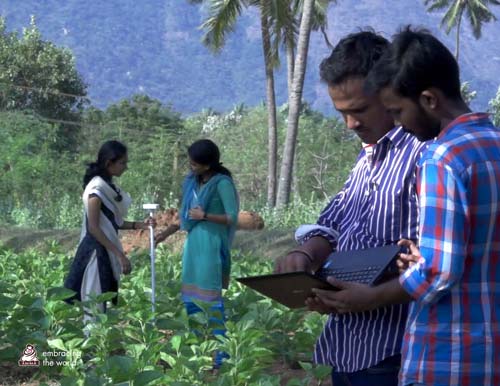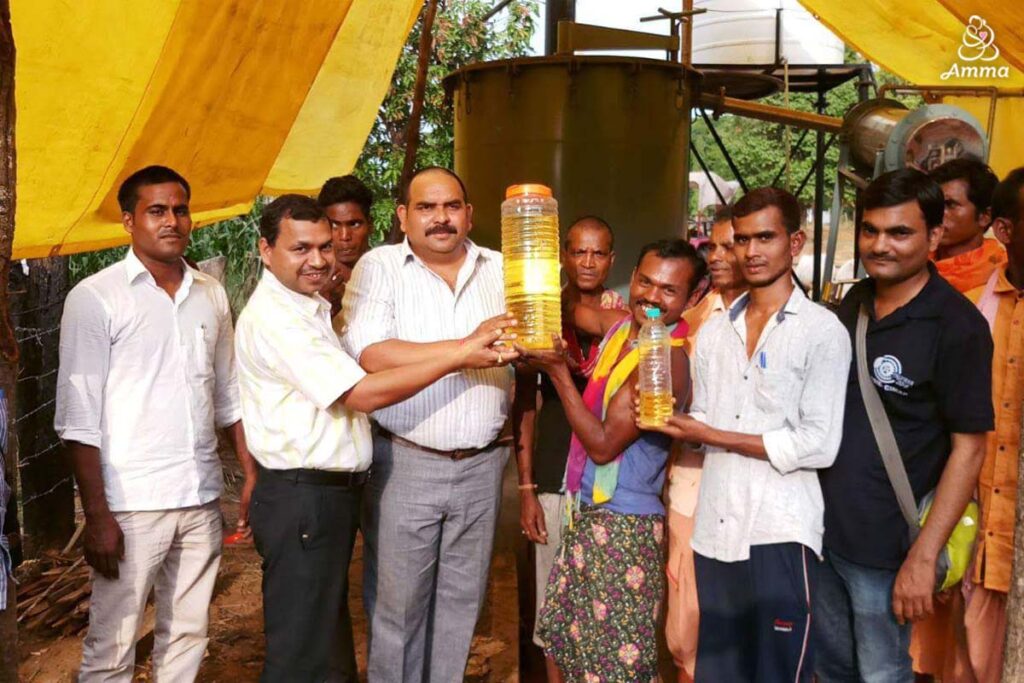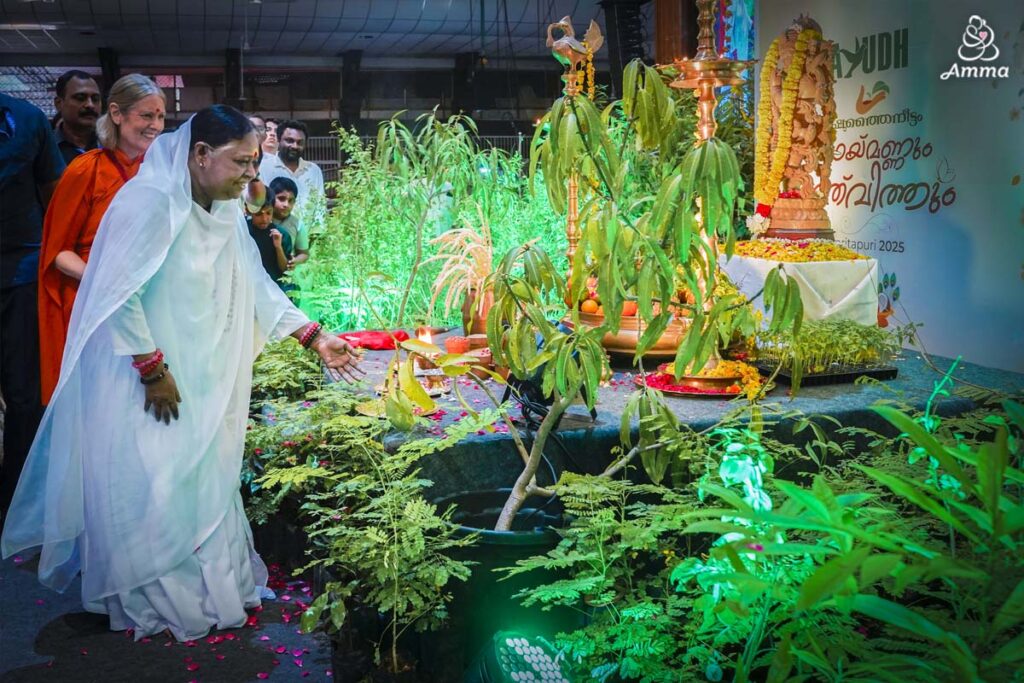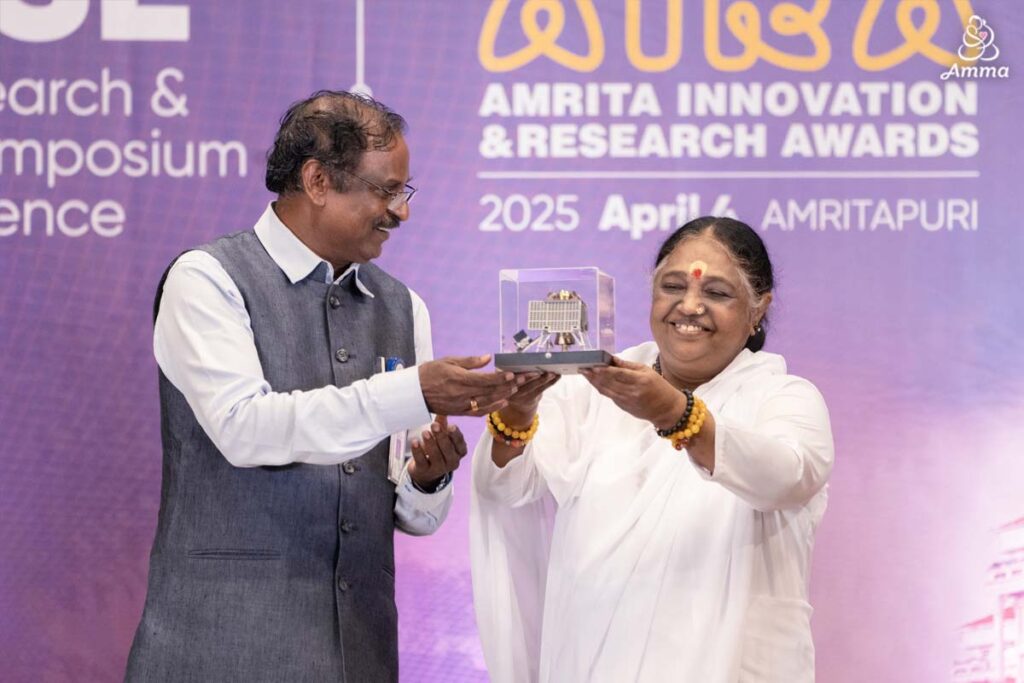Water is one of our most precious natural resources, and it is in increasingly short supply around the world. India is already facing severe shortages. According to the World Resources Institute, India is one of the most water challenged countries in the world. Groundwater levels are falling at alarming rates, leaving more and more farmers and communities desperate for this precious resource. Irrigation of fields takes up much of the water used by farmers, and as water shortages increase, agriculture is impacted. Many farmers are searching for ways to conserve water.
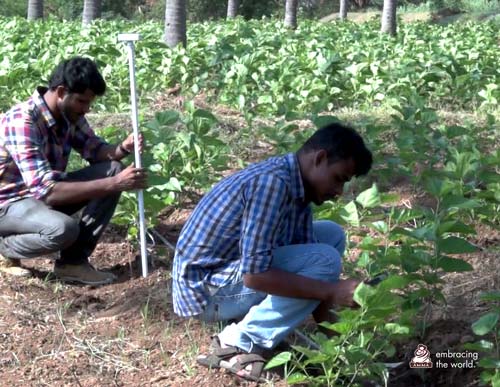
Recently, the Amrita Center for Cyber Security Systems and Networks, at our own Amrita University, developed a system called Karshaka Amrita Dhara (KAD) that dramatically reduces water use in agricultural irrigation. In a pilot project on a four acre mulberry farm in Periya Puthoor Village, in Tamil Nadu, this system was able to reduce the number of hours of irrigation from an average of five hours a day to one hour a day, thus dramatically reducing both water and electricity consumption. The system is able to detect soil moisture and provides only the required amount of water for a variety of crops.
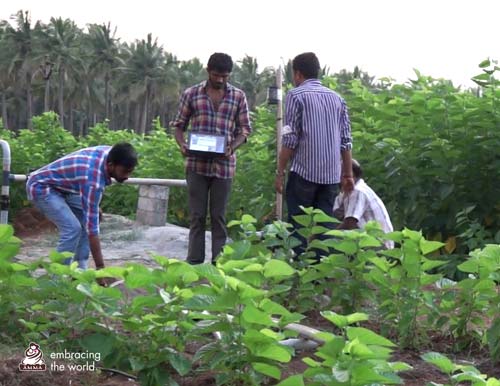
Another pilot project was recently launched in Tamil Nadu, as part of our self-reliant village initiative. A farmer named Jagannath worked alongside our volunteers to recharge his drying well. We measured the land’s contour and dug a long trench to a nearby pond, located just uphill from the well. We returned recently to visit Jagannath’s farm, and were delighted to see much higher water levels in the well. During the recent rains, the trench filled with water, which flowed into the pond and refilled the well. We are hopeful that in a season or two, water reserves will be replenished, at which time fruit trees can be planted near the trench, continuing to benefit the local communities food supply.
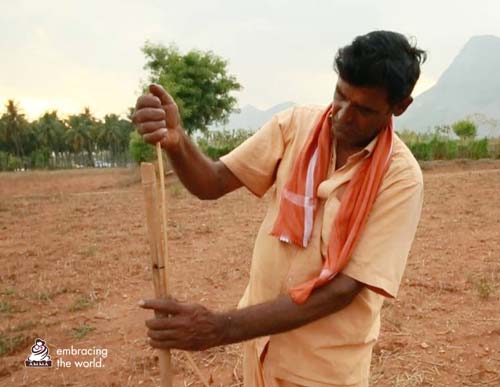
Technical innovations such as predicting irrigation patterns based on sensory data, building water collection trenches near ponds, and avoiding power outages, are what Amrita University believes is necessary to avert acute shortages of water and food in the future. Using these various technological innovations, we hope to continue to conserve and provide sustainable solutions across India and the globe.


